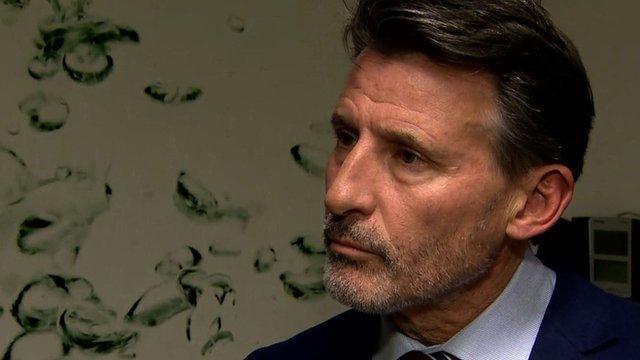Nestle ends IAAF sponsorship deal amid doping crisis
- Published
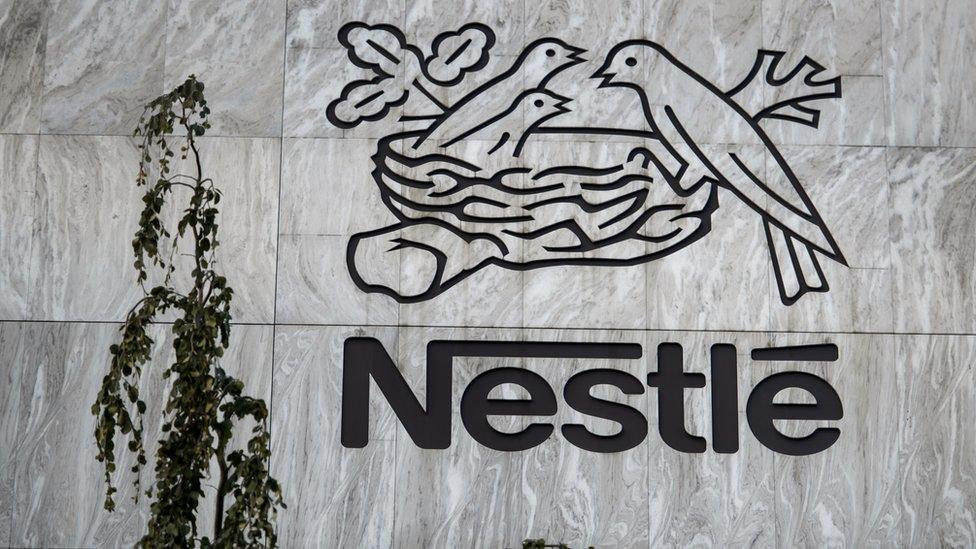
Food and drink giant Nestle has ended its sponsorship of the IAAF, as it fears the doping scandal engulfing the world athletics governing body could damage its reputation.
The Swiss company said it had taken the decision with "immediate effect".
However, IAAF president Lord Coe said he was "angered" by the decision and would "not accept" it.
Last month, sportswear giant Adidas ended its sponsorship deal with the IAAF.
"We have decided to end our partnership with the IAAF Kids Athletics programme with immediate effect," Nestle said.
"This decision was taken in light of negative publicity associated with allegations of corruption and doping in sport made against the IAAF.
"We believe this could negatively impact our reputation and image and will therefore terminate our existing agreement with the IAAF, established in 2012.
"We have informed the IAAF of our decision and await a formal acknowledgment from them that our partnership has ended."
Big loss
Lord Coe responded strongly, simply saying he was "angered and dismayed by today's kids' athletics announcement.
"We will not accept it. It's the kids who will suffer."
In a wider statement, the IAAF also emphasised the number of children that would be affected by Nestle's decision.
"In 2016, IAAF Kids' Athletics plans to reach a further 15 countries, training 360 lecturers, instructing 8,640 physical education teachers, with three million children participating by the end of the activation," the governing body said.
The IAAF is reeling in the face of widespread allegations of corruption and bribery. New president Lord Coe was brought in to clean up the organisation, and has been travelling the world trying to ease the concerns of corporate sponsors.
The loss of Nestle, coming so soon after Adidas, is a big blow to the body.
While Nestle was in the final year of its deal, Adidas' 11-year sponsorship deal, reportedly worth $33m (£23m), was due to run until 2019.
However, sources have told the BBC the figure was much higher and worth up to $8m a year.
- Attribution
- Published25 January 2016
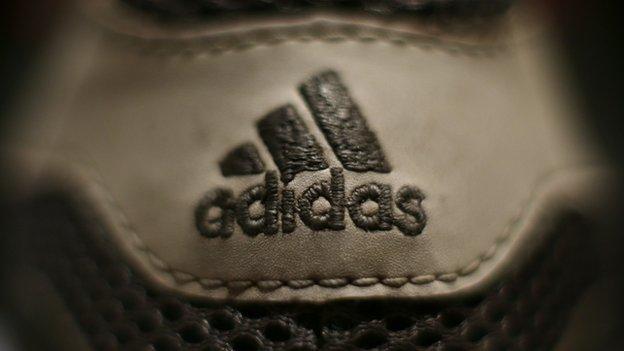
- Attribution
- Published14 January 2016
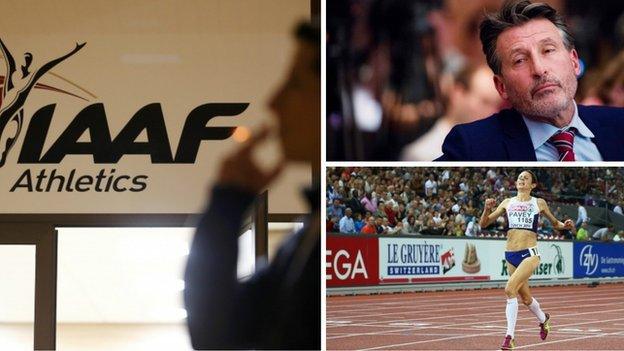
- Attribution
- Published14 January 2016
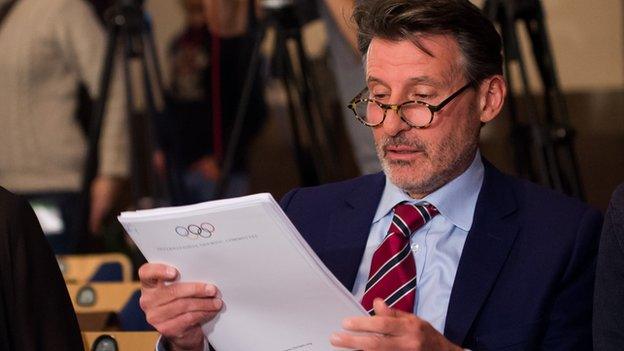
- Attribution
- Published14 January 2016
